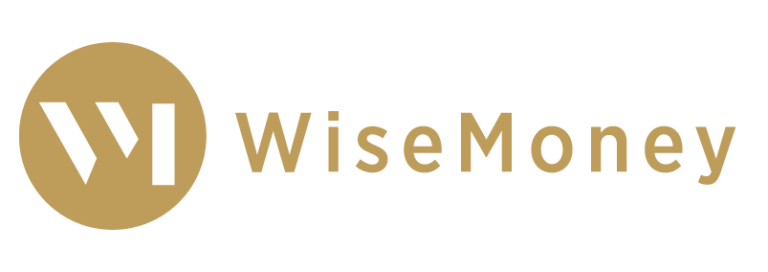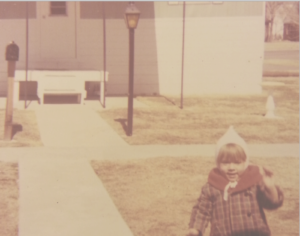Mistake #1: You don’t make savings a priority.
If you’ve followed me for awhile, you know how I harp on Savings. And, that you need 5 Savings Buckets in order to have enough liquid cash for your personal life’s curve balls and adventures.
I LOVE how Kim has the same advice for business owners. She says that the number one mistake that entrepreneurs make is that they don’t make savings in their business a priority. Per Kim, “As your business starts making a profit, putting a little bit of money aside for what I call an ‘emergency cash opportunity fund’ is critical.”
Just like your personal life, your business is an entity by itself, and it needs to have a cash reserve you can pull from for emergencies and opportunities.
So, just like I advise for your household finance — whether it’s 10% off the top or a certain percentage of every deal – do whatever you need to do to force this habit of savings.
This is especially important for variable income earners. You MUST have money set aside for the low revenue months (to cover expenses), or better yet, for a time when you want to have cash to invest in a new business growth opportunity. Maybe it’s a new marketing program or a way to uplevel the deliverable that you’re giving your clients.
For entrepreneurs bootstrapping their efforts, sometimes you’ll encounter a situation where you’ll need to pull cash from your personal account to fund your business efforts.
If you do need to lend money from your home operating account to your business, make sure that you set up the loan on your personal balance sheet and that your business is set to pay you back with interest.
Yes, you read that right.
Treat your personal loan like a business loan. The banks do it. And, in this case, you are your own banker. If you loan your business $10,000, and you decide to offer your business terms of 5%, then the payback to yourself should be $10,500.
Mistake # 2: You aren’t charging enough to be sustainable.
Kim is right on with this one. I’ve coached hundreds of entrepreneurs in my career and it’s almost always the case that those who struggle with making enough money aren’t charging enough.
All too often, because of a love for what they do, Entrepreneurs offer their products or services for way less than they are worth (sometimes even for free!)
But the fact is, in order to have a sustainable business, you absolutely, positively must make a profit. And, you can’t have profit without generating revenue — which requires you charge market rate for your services. Why? Because that’s the game of business.
Simply said: Revenue – Expenses = Profit. And, profit is what you get to keep (and use to pay your household bills)!
Too little business revenue = No profit = No money to move into your household account in order to pay household bills.
Knowing your market rate value and then charging for it is hard enough for all business owners. But, I’ve found that this is especially hard for women. Generally, I’ve seen that women have a really tough time quantifying their value and/or feeling good about charging what they’re worth. It’s a weak spot and a vulnerability, and if left unaddressed, can be detrimental to the success of a business venture.
Mistake #3: You’re not properly protected.
Insurance is far from a sexy word, but let’s face it: as is the case for your personal life — insurance a vital component to any business.
It could be liability insurance, life insurance, disability insurance, health insurance, and of course, car and other types of property and casualty insurance. Regardless of which type best suits your business needs, “protecting” your business and hard work is a MUST. Yet, when I work with entrepreneurs — it’s almost ALWAYS the missing piece.
Meaning– the business owner’s lifes work as well as their family’s financial livelihood is at great risk!
The takeaway here? Make sure you (and your business–because you are your business) is adequately protected. BUT, be careful. Insurance is a high commission business — There are plenty of sharks out there willing to take your money and many times, put you at even greater risk.
When it comes to protection, with the exception of life insurance, insurance should be looked at in one box.
Kim explains the importance of knowing the difference between Life insurance and what she calls “IF-THEN” insurances. [“IF” your house floods. “IF” your car gets wrecked. “IF” you break your leg. IF. IF. IF.]. Kim recommends to negotiate on price when it comes to If-then insurance as these types are more of a commodity (cookie-cutter).
Life insurance, on the other hand, should be customized to your financial ambitions, business projections, investment strategies, and so on. In other words, it shouldn’t truly fit into the insurance category, but more of the investment category since it needs to be part of your long-term financial life design. Therefore, hiring for expertise (not cost) is the most important factor.
One final piece of advice:
As an entrepreneur, your ability to work IS your income — for the business and downstream — for your home and family. I can’t express this often enough:
Your (income-producing) body is your number one asset. Therefore, you must protect your income in the event that your body needs to be put in the shop for awhile. (an accident, disease, etc.)
Almost everyone insures their house, their cars and their health. But, they don’t insure their ability to make income!
Mistake #4: You’re paying too much in taxes.
This one is the most often overlooked because taxes are complicated. But, reducing your taxation is simply more money in your pocket. And, one of the best things about being a business owner is being able to write-off allowable expenses!
BUT — a bona-fide business owner is incorporated. So–the best tax-advantages go to business entities, not sole-proprietors. If you are a freelancer, real estate agent, or fit within the category of “sole-preneur” — If you haven’t already done so — incorporate.
This is the one place where a split-personality is highly functional! You are a business in one capacity. And, you are you in another. As Kim quotes, “Whether it’s an S corp, C corp or an LLC, creating this business separation will allow optimal deductibility of your income.”
Keep in mind that optimizing your taxes also requires acquiring a good CPA and bookkeeper. But most people don’t know where to go to find this help. If you’re unable to find a referral from your friends and family network, I recommend referring to this article from Nerdwallet on how to source a reputable CPA on your own.
Mistake #5: You’re falling victim to common bookkeeping mistakes.
Bookkeeping mistakes can halt progress and profits in their tracks. I know this one from personal experience. For me, good business bookkeeping is one of the most difficult business requirements to stay on top of!
Kim has these 5 pieces of bookkeeping advice:
- Get a REPUTABLE bookkeeper
- Set everything up on QuickBooks, not Quicken. (Quicken is basically just a checkbook – That’s not proper accounting)
- Keep your reports clean. Have everything as black and white as possible.
- Make sure your business and personal accounts are kept SEPARATE
- Have separate credit cards. You don’t have to have a business credit card per se, but you need to have a separate credit card for your business in addition to the ONE card you have for your personal.
Mistake #6: You’re investing before you save.
Back to mistake number one, a lot of people don’t make savings a priority. This is, in part, because many entrepreneurs are so excited about investing. And to make matters worse — they ONLY invest in their business [meaning not diversifying] while they leave little to zero liquid in the form of cash savings.
According to Kim, “You should be excited about investing, but to prioritize investing over saving is a huge mistake.”
Her advice: “establish that emergency opportunity fund so that you have liquidity to solve emergencies and to take advantage of opportunities.”
Mistake #7: You’re un-vesting inside the “rollercoaster ride.”
What’s the definition of an investment?
Many people would say the stock market and/or real estate. But, if all of your investments are tied up in environments that are volatile (like Wall Street), that’s less than optimal.
Step one (as previously mentioned) is to secure emergency liquidity.
Step two is to secure safe (and boring) investments.
Kim, as an investment advisor, recommends that you make sure that a portion of your portfolio is safe and protected from losing principle.
Mistake #8: You’re not investing in yourself.
Thus far — you know that you must earn, protect, incorporate, save and invest as important and necessary elements of your overall business and financial success.
But it’s important that you concurrently find a way to invest in yourself. In the context of your “body is your number one asset,” the corollary to that is — your mind is your asset. Therefore, knowledge acquisition and personal/professional growth are true investments that will reflect on the balance sheet.
Kim says, “Investing in yourself, sends a powerful message – to yourself and to the world. The message being: When I give myself the energy, space and time to grow, my value and potential grow exponentially.”
This may sound a bit “woo-woo”, but when you’re willing to take the leap and invest in yourself, I’ve found that the universe steps up to offer you amazing rewards.
Mistake #9: All of your money is locked up in a retirement plan.
I truly enjoy my conversations with Kim. Truly, we are fully aligned on all accounts when it comes to money and investing. And, most especially on this one — what I call the “Retirement Myth — The 59 and a half thing.”
You know .. all that jargon and advice about 401Ks, IRAs, 403Ds, etc. etc.
These can be good tools but don’t confuse them with THE investment vehicle for your future! Especially as a small business owner — having money locked up until your 59 and a half is really just a restriction.
Kim suggests — “If you already have money in locked in those accounts – that’s fine, just leave it there. I’m not a big fan of paying the 10% penalty to get it out. BUT — don’t put any more in!”
REMEMBER: The entire goal of investing is for future cashflow — NOT RETIREMENT! When you just associate investing for retirement, you’re missing a big piece of the financial puzzle and therefore, you are in grave danger of not having enough when you need it most (beyond your working years!).
Mistake #10: You wait too long to get professional help.
We know this about all areas of our life:
If we need help, if we’re trying to get something done but can’t seem to do it ourselves, it’s so important to work with a coach, consultant, advisor — or some other form of help.
Throughout my career — and personal life for that matter — I’ve always had a coach of one kind or another. People ask me all the time — if you had choose ONLY ONE tip for business and financial success — what would it be. My answer is quick, easy and always the same — INVEST IN HELP → Elder or Expert Advise. Someone who has done what you want to do! There is no better or quicker return on investment. Period.
So if you want tax help, get a good CPA. If you want insurance help, reach out to an insurance advisor. If you want financial or coaching help, talk to me. 🙂
To conclude:
If you’ve watched the video and/or read this blog, you may be wondering where to go from here.
As you may well know, answering the “what do I do now/next” question is a specialty of mine. As a token of my gratitude for spending your time investing in the knowledge contained on this site, I’m happy to spend 30 minutes on the phone with you.
During our call, we’ll have the opportunity to discuss your life, your goals, and your money. The purpose of the call will be to make sure you are taking that best next step forward.
My consulting calls are $500/hour. BUT, for a short time, I’m offering this 30 minute call with me for FREE.
I truly love helping people achieve their financial dreams and create a life they love!
If you’re interested in connecting with me Schedule a Breakthrough Call
To Hear More From Kim and I checkout Podcast Episode #76
To watch interviews like this happening live become a member of Sovereignty Academy Campus today
Watch the next interview with Kim here




